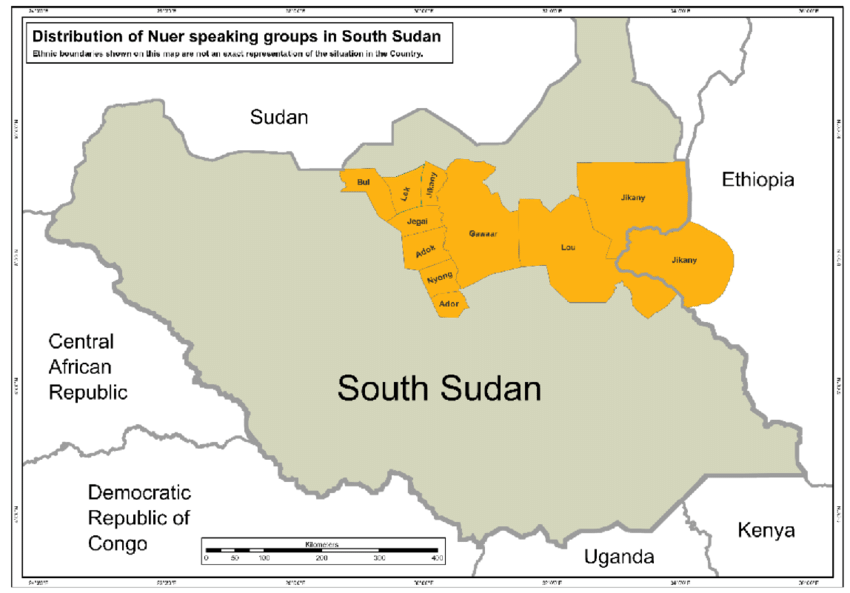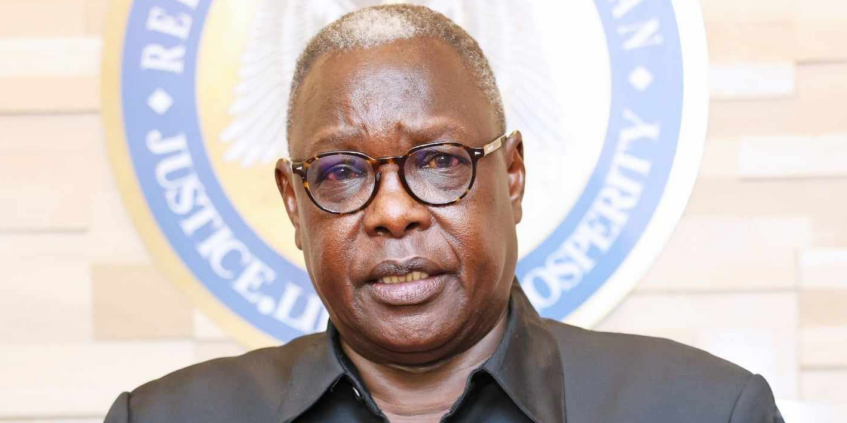South Sudan’s government has classified Nuer-majority areas as either “hostile” or “friendly” in a rare public announcement, amid rising tensions between President Salva Kiir and First Vice President Riek Machar following recent violence in Nasir.
Last month, Kiir placed Machar under house arrest, accusing him of inciting rebellion against the government to undermine peace.
The two leaders, along with other political figures, signed a 2018 peace agreement to end a devastating civil war. However, the deal has stalled over key issues, including unifying armed forces, preparing for elections, and drafting a permanent constitution.
At a press conference in Juba on Saturday, Cabinet Affairs Minister Dr. Martin Elia Lomuro named Nasir, Ulang, Akobo, Nyirol, Uror, Fangak, Ayod, Rubkona, and Panyijiar counties as “hostile,” while Maiwut, Longechuk, Guit, Leer, Mayendit, Koch, and Mayom were designated as “friendly.”
Lomuro, a close ally of Kiir, accused communities in the “hostile” counties of refusing to recognize the government, leading to attacks on security forces. He specifically blamed Machar’s SPLM-IO party for dominating these areas.
“This community [Nuer] is divided into four sub-sections and has deliberately refused to recognize the government. That is why they can boldly attack and kill government forces,” he said.
The national minister cited a deadly March 4 attack in Nasir County by the White Army—a Nuer youth militia—that reportedly killed more than 400 South Sudan People’s Defence Forces (SSPDF) troops, including base commander David Majur Dak.
He called the killings a “heartbreaking betrayal” and warned that the incident threatens to derail the fragile peace process.
“In a place like Nasir, close to Ethiopia and Sudan, those soldiers were our protection against external threats,” Lomuro said. “They were seized, isolated, and slaughtered while the world watched.”

Lomuro, who also serves as Secretary-General of the High-Level Committee for Implementing the Peace Agreement, said the 2018 deal must not be derailed by infighting within Machar’s SPLM-IO party, which he said fractured into factions after the Nasir attack.
He said his committee would soon meet to determine which SPLM-IO faction to engage with to advance the peace agreement.
Lomuro also called on neighboring states—especially those sharing porous borders with South Sudan—to avoid providing sanctuary, logistical support, or political backing to armed groups undermining stability.
Separately, Information Minister Michael Makuei Lueth said the government had tasked the high-level committee with speeding up the unification of armed forces.
He proposed bypassing the cantonment process, allowing troops to move directly from their bases to training centers to ensure elections are held in December 2026.
Fears of renewed conflict
The government’s move to classify Nuer areas has raised fears of renewed conflict and divisions in a country still recovering from years of war.
Prominent activist Ter Manyang Gatwech criticized Lomuro’s remarks, calling them “not only troubling but direct hate speech.” He argued such statements were unbecoming of a senior government official.
“The ongoing situation in Nasir and Ulang counties is driven by peace spoilers within the government,” Gatwech told Radio Tamazuj.
He said clashes could be avoided if authorities implemented Chapter Two of the 2018 peace deal, which requires deploying unified forces to conflict zones. “The White Army’s demand is simple: fulfill this obligation,” he said.
Gatwech urged political leaders to prioritize unity and reconciliation, saying: “South Sudan needs unifiers, not dividers.”




